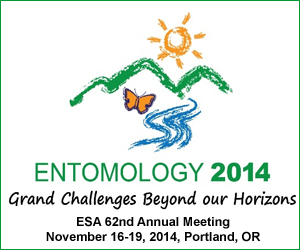Using natural compounds to control mosquito populations: efficacy of plant essential oils against the African malarial and the yellow fever mosquito
Using natural compounds to control mosquito populations: efficacy of plant essential oils against the African malarial and the yellow fever mosquito
Monday, March 10, 2014: 4:18 PM
Davenport (Des Moines Marriott)
Most current mosquito control techniques involve the use of large quantities of synthetic insecticides to control mosquito populations in areas where disease epidemics are likely to happen or have already occurred. While this method has worked in the past, the increase in insecticide-resistant mosquito populations is complicating the effectiveness of this approach. Plant essential oils offer a diverse array of compounds that possess the ability to kill or deter insects by many different modes of action. The goal of our study was to determine if plant essential oils could be used to effectively kill mosquitoes. To test this, we screened a set list of plant essential oils against two major disease vectors, Aedes aegypti and Anopheles gambiae, by means of topical application. Toxicity profiles of the oils differed significantly both within and between species. We propose that these differences are due to diverse and potentially novel mechanisms of action over current synthetic insecticides. These studies suggest the possibility of implementing such essential oils or their components in future mosquito control efforts.
See more of: Ph.D. Student Ten-Minute Paper Competition: SysEB, MUVE Session
See more of: Student Oral Paper Competition (Ten-Minute)
See more of: Student Oral Paper Competition (Ten-Minute)


